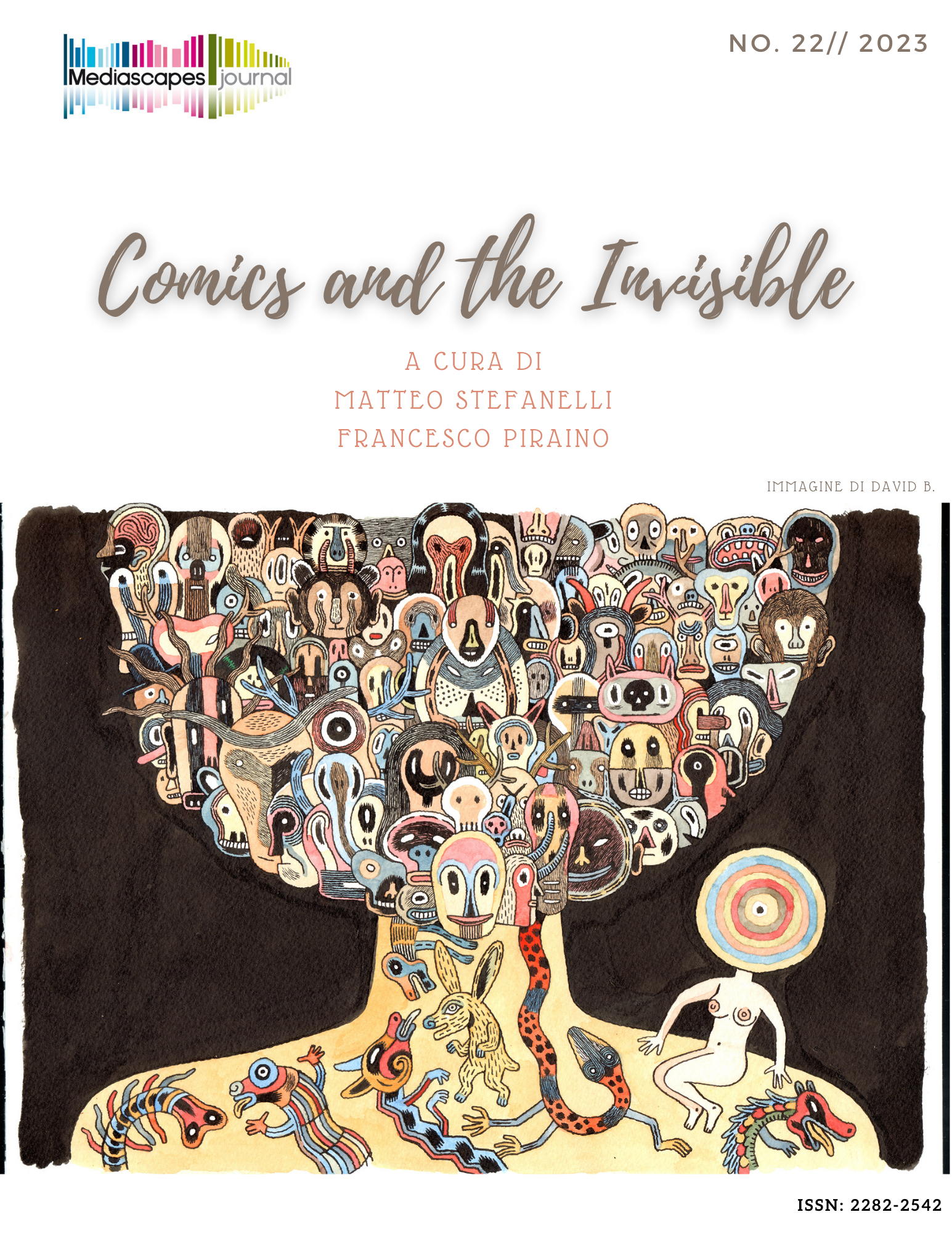Giving Up the Artistic Aspect
The invisibility of comics made in extreme conditions of confinement: Charlotte Salomon, Karel Frans Drenthe and Eleuterio Fernández Huidobro
Keywords:
Art Brut, comics, confinement, dictatorship, psychiatryAbstract
Leben? Oder Theater? by Charlotte Salomon, Krankzinnig Verpleging by K. F. Drenthe and Historia de Garabato y Florazul y de sus amigos by Eleuterio Fernández Huidobro have long been ignored within the comics fields but were also created in the loneliness of isolation. Their invisibility is therefore two-fold. The present essay study them from this double perspective and analyse the tension between these two invisibilities. To this end, they will be considered through the concept of ‘comicity’ that Colin Beineke has forged and through what Jean-Christophe Menu has described as the “hors-champ de la bande dessinée.” In doing so, the paper aims to question the reason of the fundamental choice made by the creators from outside the comics field to testify the isolation experience through a story in images. It will study their creation context and the possible influences within and without the comics field. The analyse will then show how their comicitous features are congruent with the urgent need of the authors to express oneself. It will also study the link between the conditions under which these works were made and their characteristics in terms of topics, graphic styles and narrative structures with the aim to establish what a poetics of comics made in extreme conditions of confinement could be.



